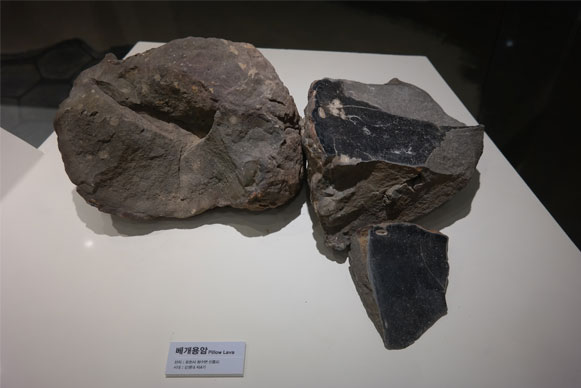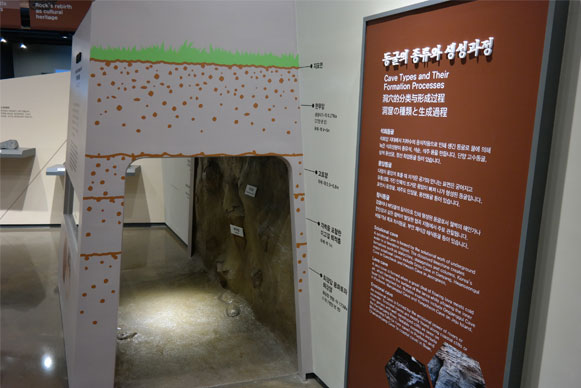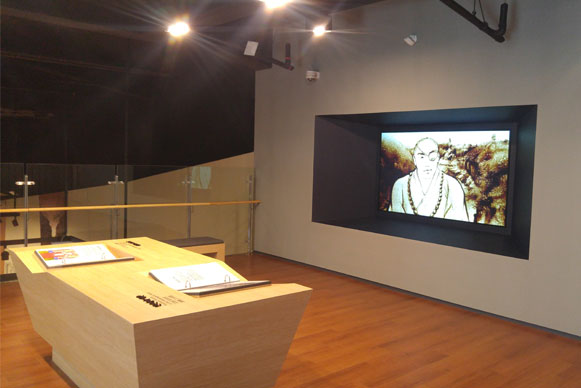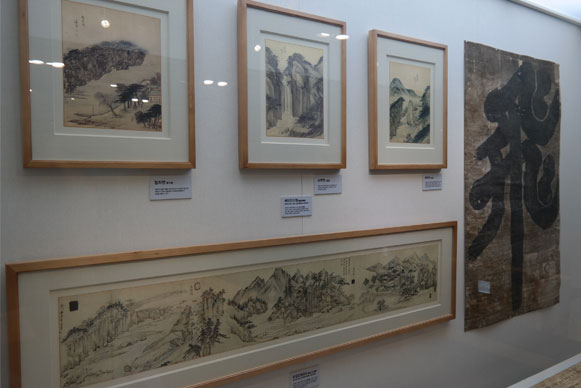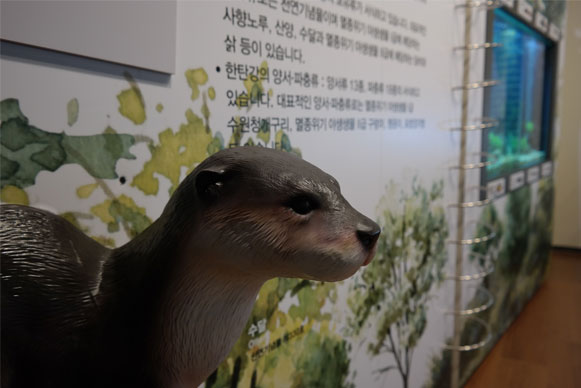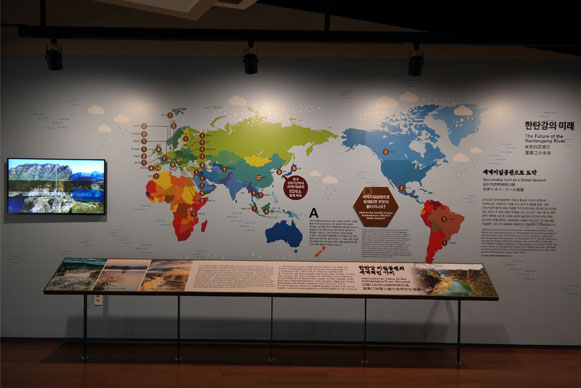Exhibition Hall Information

- Exhibition Hall Information
- Permanent Exhibition Hall
Permanent Exhibition Hall
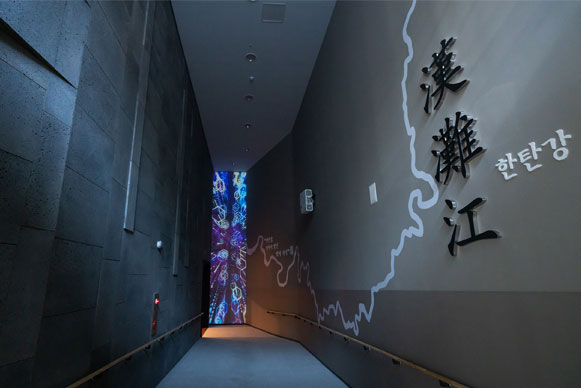
The permanent exhibition hall consists of three Halls: Geology Hall, Geological Culture Hall, and Geopark Hall
Geology Hall
Geology Hall displays the unique geological characteristics that were formed through the interaction between Hantangang River’s lava and the river water. Its major exhibits include Korea’s largest columnar jointed gorge, pillow lava—which is rarely found on land—and Ongjanggul Cave, which is characterized by its unusual generative principle. It also features titanomagnetite—which contains titanium—and Pocheonseok stone as one of Korea’s three major granite stones. In addition, the room has a volcanic eruption experience facility where visitors can easily understand the process of volcanic eruptions and rock formation.
Geological Culture Hall
Geological Culture Hall introduces stories of the people living in Hantangang River. It displays Hantangang River’s artifacts related to the stone culture of the late Old Stone Age, the real artifact of dolmen from the Bronze Age, and the dwellings and large jar and other pottery artifacts of the Proto-Three Kingdoms period found from the Hantangang riverside.
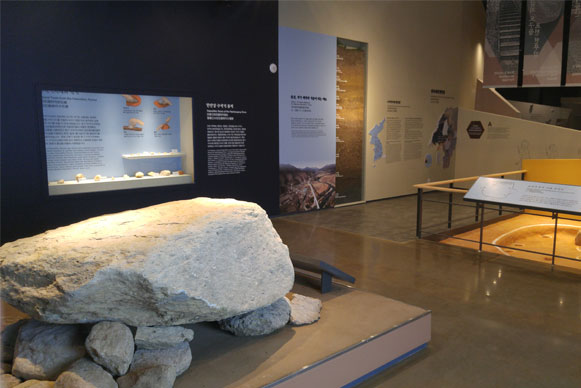
In addition, it introduces the following: story of Kung Ye, the founder of Taebong State that ruled the area of Hantangang River during the Later Three Kingdoms period; calligraphic works of Yang Sa-eon, who was one of the four major writers of the early Joseon period; and paintings by Jeong Seon (Gyeomjae), the master of “true-view” landscape paintings who depicted the landscape of Hantangang River.
Geopark Hall
Geopark Hall introduces the current Hantangang River. As the river has been designated as a water source conservation area and a military facility protection area, its ecology and geographical features have been well-preserved. Hantangang River can be called a repository of the ecosystem that is home to a large number of natural monuments and endangered animals and plants.
The room showcases the following: natural monuments such as Eurasian otter, common kestrel, and Korea spotted barbel; first-grade endangered wildlife such as red-crowned crane, musk deer, Suwon tree frog, and Korean lady’s slipper; and second-grade endangered wildlife such as white-naped crane, marten, narrow-mouth frog, and pink catchfly. In addition, Geopark Room provides information on Hantangang River, Korea’s geoparks, and UNESCO global geoparks.


